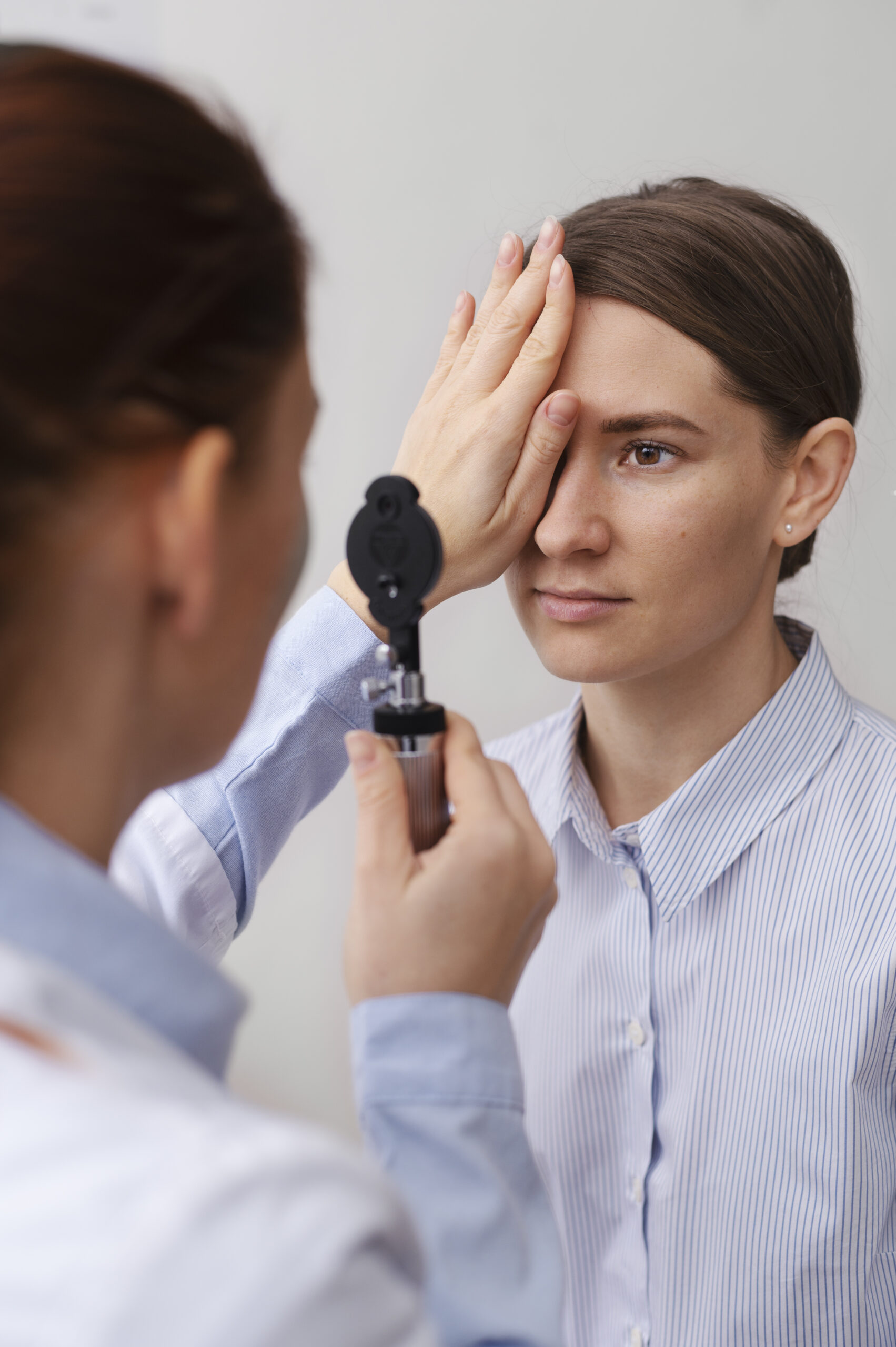Glaucoma
Home
Glaucoma
Natural Remedies for Glaucoma – Ayurvedic Approach
Glaucoma is a progressive eye disorder characterized by increased intraocular pressure (IOP), leading to optic nerve damage and vision loss. Modern medicine treats glaucoma mainly with eye drops, surgery, or laser therapy, but Ayurveda offers natural remedies for glaucoma that focus on maintaining eye health, improving blood circulation to the optic nerve, and reducing pressure naturally.
Ayurvedic treatment emphasizes herbal therapy, Panchakarma, diet, yoga, and lifestyle adjustments to support vision, prevent disease progression, and enhance overall ocular health. These holistic therapies aim to treat the root cause—imbalance in Vata and Pitta doshas—while strengthening the tissues responsible for eyesight.

Causes of Glaucoma
Glaucoma occurs due to a combination of physiological and lifestyle factors:
- Elevated Intraocular Pressure (IOP): Excess aqueous humor fluid in the eye damages the optic nerve.
- Genetic Predisposition: Family history increases susceptibility.
- Aging: Natural degeneration of ocular tissues can trigger glaucoma.
- Underlying Health Conditions: Diabetes, hypertension, and vascular disorders affect optic nerve health.
- Ayurvedic Perspective: Imbalance in Vata and Pitta doshas leads to dryness, nerve damage, and impaired ocular function.
Symptoms include: gradual vision loss, tunnel vision, eye pain, headaches, blurred vision, and halos around lights. Early detection is crucial to prevent irreversible blindness.
Why Glaucoma Happens
Modern science explains glaucoma as optic neuropathy caused by increased eye pressure, reduced blood supply to the optic nerve, or abnormal fluid drainage. Without treatment, retinal cells degenerate, resulting in permanent vision loss.
From an Ayurvedic perspective, glaucoma arises from:
- Vata imbalance: causes dryness, nerve degeneration, and poor eye circulation
- Pitta aggravation: leads to inflammation and oxidative stress in ocular tissues.
- Ama (toxins): accumulation in the body blocks micro-channels (srotas), including ocular channels, worsening optic nerve health.
How People Suffer from Glaucoma
Glaucoma impacts physical, emotional, and social life:
- Vision Loss: Tunnel vision and difficulty in low light affect mobility.
- Chronic Eye Pain: Headaches, eye strain, and discomfort are common.
- Mental Health Issues: Anxiety and depression due to fear of blindness.
- Lifestyle Limitations: Difficulty in driving, working, and daily activities.
Early adoption of natural remedies for glaucoma improves visual health, reduces eye strain, and enhances quality of life.
Methods of Curing Glaucoma
1. Ayurvedic Therapies
- Netra Tarpana: Medicated ghee applied to eyes in a shallow well to nourish optic nerves.
- Nethradhara: Herbal decoctions poured over eyes for detoxification and tissue strengthening.
- Panchakarma:
- Nasya (nasal therapy): Clears toxins from head and improves eye circulation.
- Virechana (purgation): Reduces Pitta toxins affecting ocular tissues.
- Nasya (nasal therapy): Clears toxins from head and improves eye circulation.
- Rasayana Therapy: Herbs like Amalaki, Shatavari, and Triphala rejuvenate optic nerves and improve eye health.
2. Herbal Remedies
- Triphala: Strengthens retina and optic nerve, reduces oxidative stress.
- Brahmi & Shankhapushpi: Enhance nerve function and mental clarity.
- Ghee-based herbal preparations: Nourish eye tissues internally (Netra Basti).
3. Dietary Guidelines
Foods to Take:
- Green leafy vegetables, carrots, beets
- Amla, grapes, oranges (rich in Vitamin C & antioxidants)
- Almonds, walnuts, flax seeds (healthy fats for nerve function)
- Herbal teas (Triphala, Tulsi)
Foods to Avoid:
- Excess salt and sugar
- Processed and fried foods
- Alcohol and tobacco
- Highly spicy or acidic foods
4. Exercise & Eye Care Practices
- Eye exercises: palming, rotations, Trataka (candle gazing)
- Gentle yoga: Surya Namaskar, Shitali Pranayama, Bhramari
- Morning sunlight exposure (without direct staring at sun) to improve eye metabolism
- Regular walking to improve circulation
5. Modern Supportive Treatments
Some patients may require IOP-lowering medications or surgery, but Ayurvedic treatment for glaucoma is complementary and focuses on slowing progression naturally.
Conclusion
Glaucoma is a progressive eye disorder that can lead to irreversible blindness if untreated. Natural remedies for glaucoma in Ayurveda, including herbal medicines, Panchakarma therapies, Netra Tarpana, diet, and lifestyle modifications, help manage intraocular pressure, nourish optic nerves, and support overall eye health.
Combining Ayurvedic care with regular medical check-ups can slow disease progression, preserve vision, and improve quality of life. Early intervention and consistent adherence to natural therapies are key to maintaining long-term ocular health.
FAQ
Glaucoma is a group of eye diseases that damage the optic nerve (the nerve connecting the eye to the brain), often due to elevated intraocular pressure (pressure inside the eye). Over time, this can lead to irreversible vision loss if not managed.
Because in many cases, glaucoma progresses gradually and without noticeable symptoms until significant vision loss has already occurred. Many patients don’t realize they have it until advanced stages.
Some common types include:
In many cases, there are no obvious symptoms in early stages. But potential signs (especially in acute or angle-closure cases) can include:
- Blurred vision
- Seeing halos or colored rings around lights
- Eye pain, ache, or headache
- Redness of the eye
- Nausea or vomiting (in acute angle-closure)
- Loss of side (peripheral) vision (which may go unnoticed initially)
Supportive measures include:
- Using medications exactly as prescribed
- Avoiding activities that spike eye pressure (heavy straining, head-down posture)
- Maintaining a healthy diet and circulation
- Staying hydrated (but avoid overhydration in short time)
- Protecting eyes from UV light and trauma
- Regular checkups and monitoring
